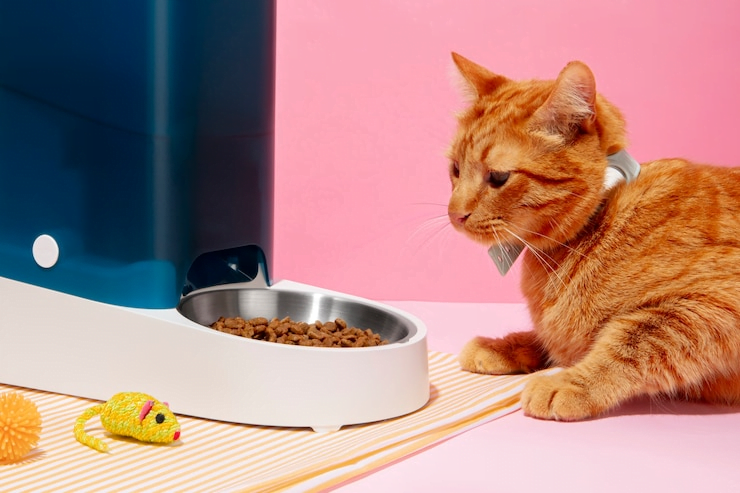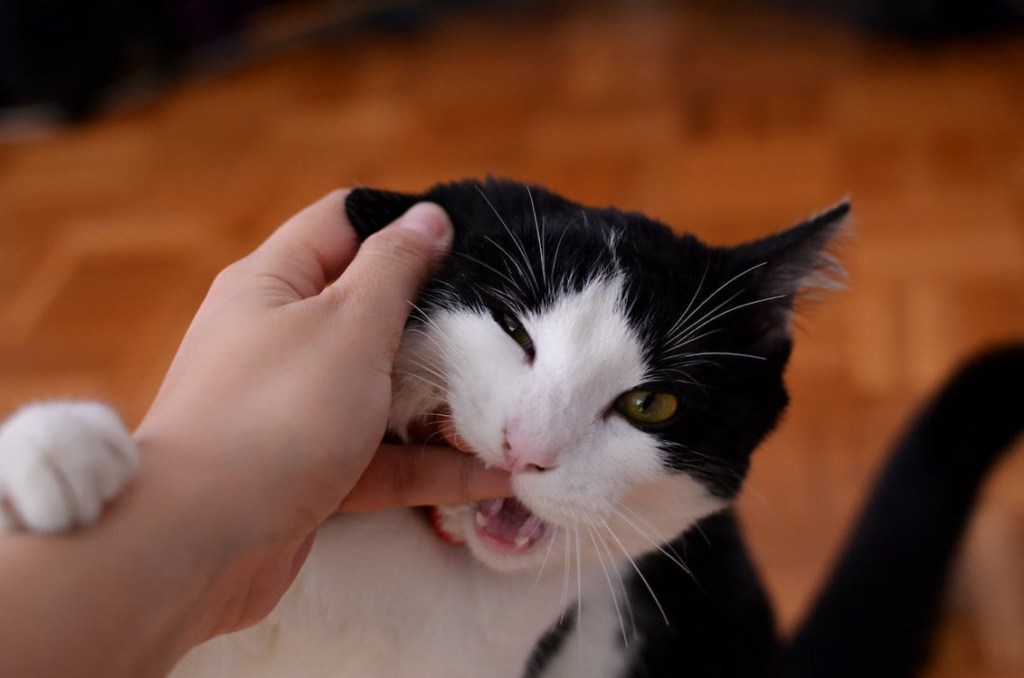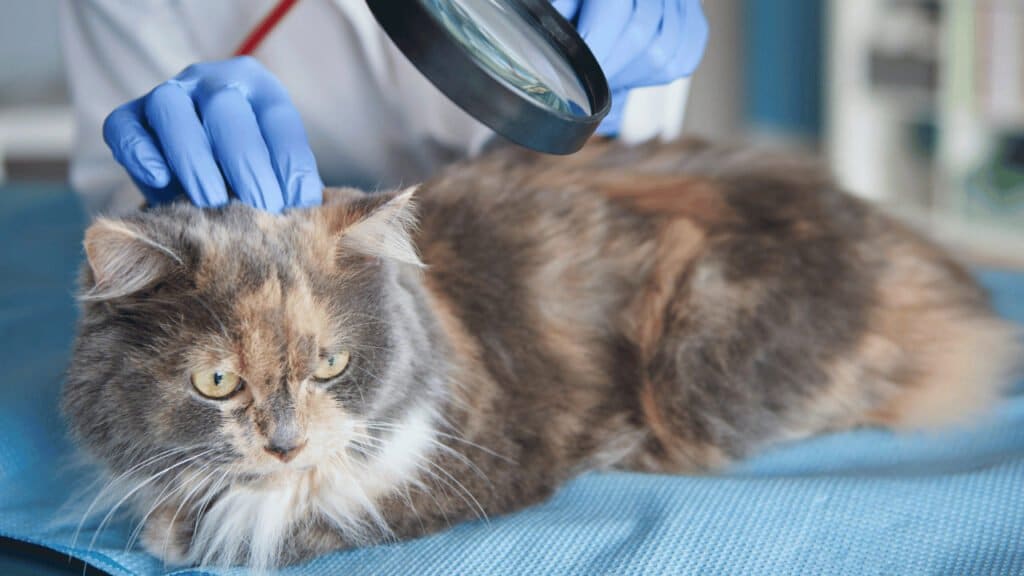If you’re wondering, “Why is my cat breathing fast?” there are several potential reasons, including respiratory infections and exposure to toxins. Rapid breathing or heavy breathing can indicate a serious health issue, such as heartworm disease or asthma in cats. A high respiratory rate, or labored breathing, may be a clinical sign of respiratory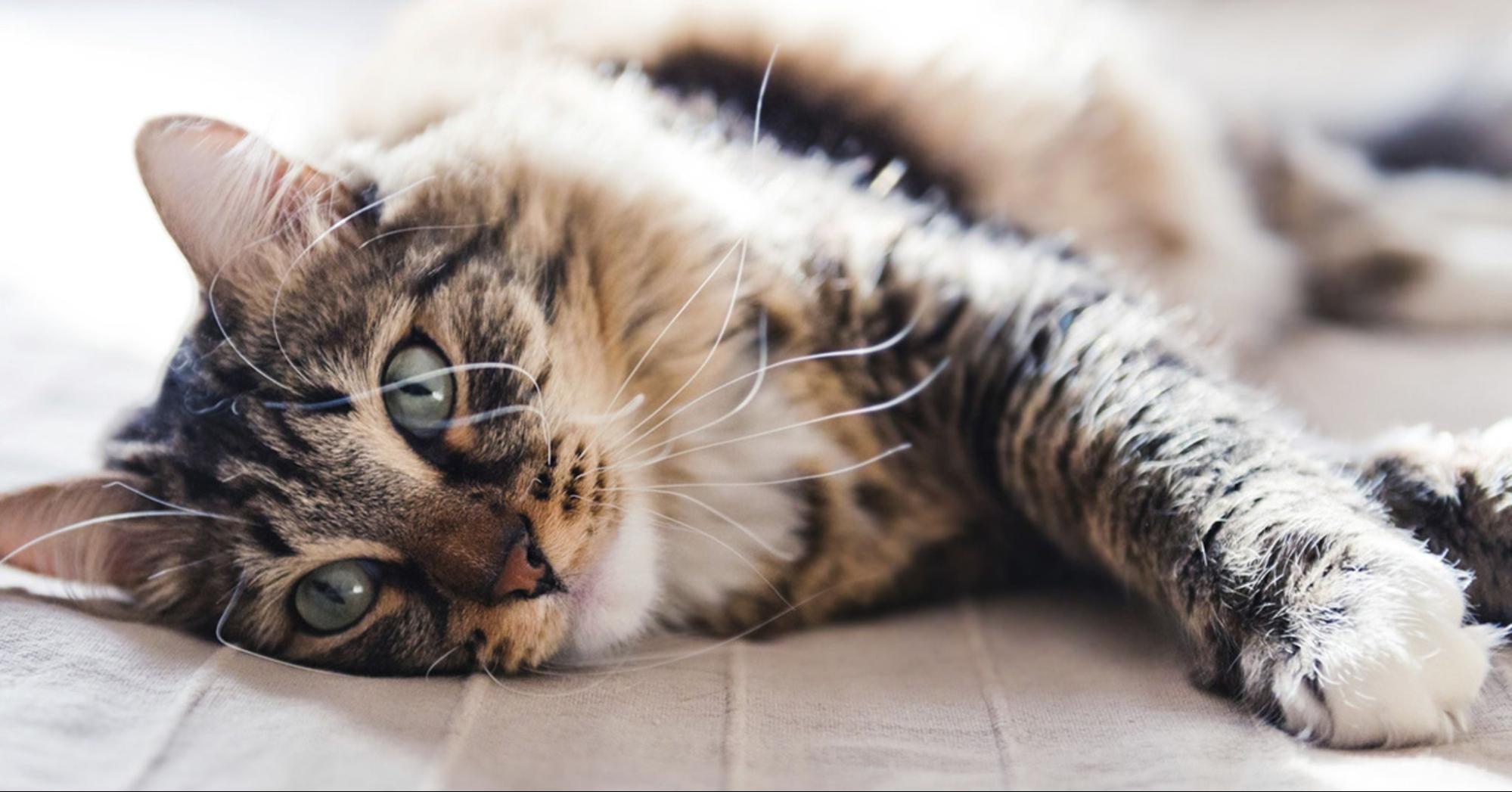 distress, requiring immediate veterinary care.
distress, requiring immediate veterinary care.
Normal breathing for a cat is quiet and effortless. However, sometimes you might notice your cat taking rapid breaths, also known as tachypnea, or struggling to breathe, which can be very concerning. This rapid breathing can be caused by a variety of factors, ranging from temporary inconveniences like emotional distress or strenuous exercise to more serious medical conditions like heart disease or respiratory infections.
This guide will provide information on the different causes of rapid breathing in cats and when to seek veterinary care. It’s important to note that this information is for informational purposes only and should not be a substitute for professional medical advice.
Is My Cat’s Breathing Normal?
Agonal breathing is a terrifying and alarming symptom that can indicate serious health problems in cats. This type of breathing is a reflex action of the brainstem that occurs when the cat’s respiratory system is struggling to get enough oxygen. It is different from normal breathing patterns in cats, as it is irregular and may include gasping or panting.
Agonal breathing can be seen in cats who are dying or experiencing severe health problems such as heart failure, trauma, or respiratory distress. If you notice your cat experiencing agonal breathing, it is crucial to seek immediate veterinary attention. Delaying treatment can result in irreversible damage or even death. At the veterinarian clinic, the vet will conduct a thorough examination of your cat and may recommend blood tests, X-rays, or other diagnostic tests to determine the underlying cause of the agonal breathing.
Identifying the root cause of this condition is essential to provide appropriate treatment and improve your cat’s chances of recovery. There are several potential causes of agonal breathing in cats, including heart failure, trauma, respiratory distress, or severe illness. Another common respiratory issue in cats is feline asthma, which causes chronic inflammation of the small passageways in the lungs.
Symptoms include wheezing, difficulty breathing, and a persistent cough. Although incurable, feline asthma can be managed with the right care and medication. Keep an eye on your cat’s breathing and seek professional advice promptly if you notice any abnormalities. Remember, your cat’s well-being depends on your vigilance and timely action!
Why Is My Cat Breathing Fast?
Rapid breathing in cats can be a cause for concern. While some instances of heavy breathing are normal, especially after strenuous exercise or during periods of emotional distress, persistent or abnormal breathing rates may indicate an underlying health issue. Here are some potential reasons for rapid breathing in cats: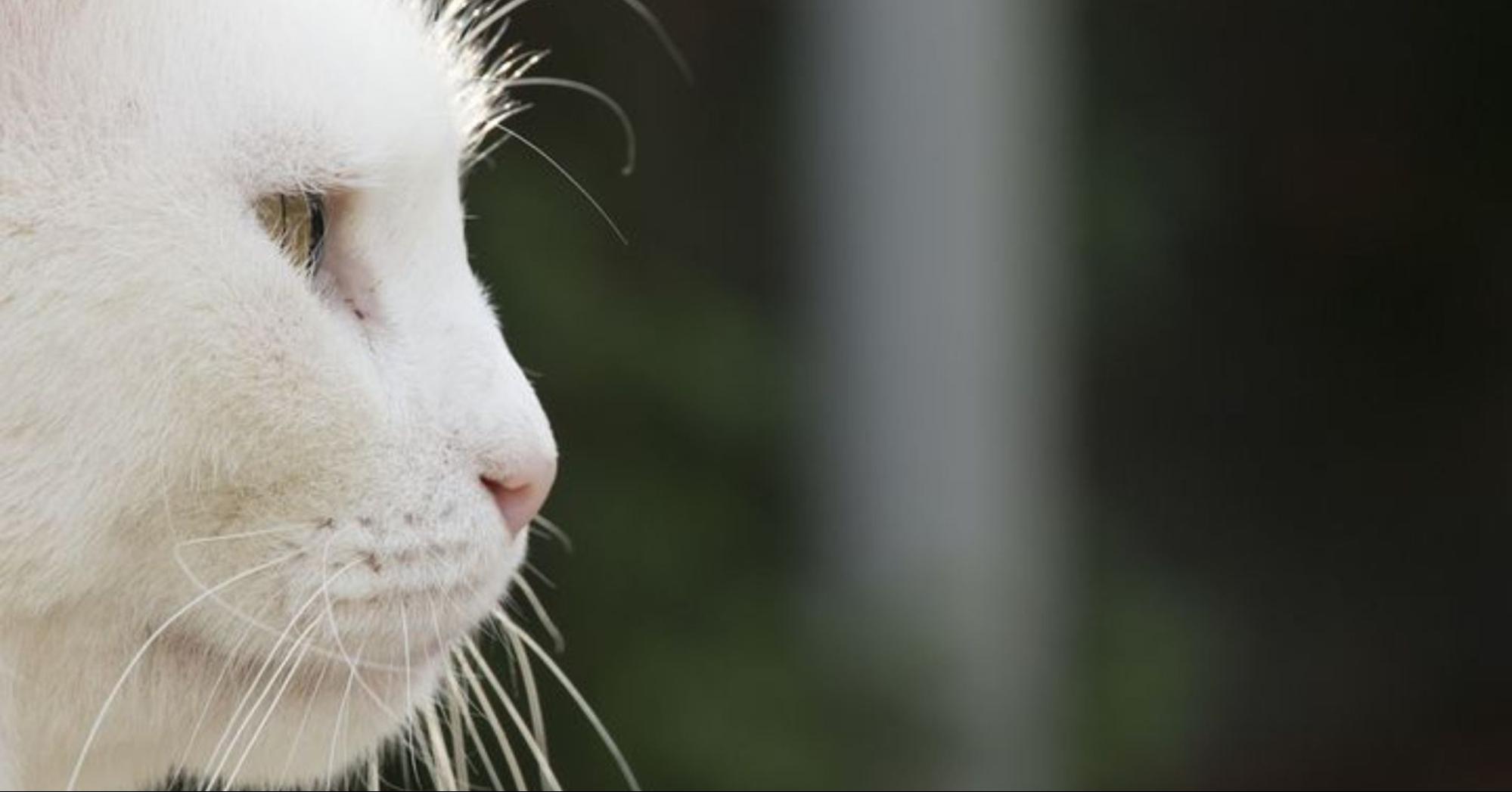
- Respiratory Infections: Bacterial or viral infections affecting the respiratory system can lead to increased respiratory rate. Seek veterinary care if you suspect an infection.
- Heart Disease: Cats with heart conditions may exhibit labored breathing due to fluid buildup in the chest cavity. Heart murmurs or abnormal heart sounds should prompt evaluation.
- Airway Obstruction: Foreign objects or excess fluid can obstruct the airway, causing breathing difficulties. Emergency veterinary attention is crucial in such cases.
- Neurologic Disorders: Some neurologic conditions affect breathing patterns. Diagnostic tools like chest X-rays can help identify these issues.
- Pleural Effusion: Excess fluid around the lungs (pleural effusion) can lead to respiratory distress. Treatment may involve draining the fluid and addressing the underlying cause.
- Heartworm Disease: Cats infected with heartworms may experience breathing issues. Preventative medication and regular check-ups are essential.
- Asthma in Cats: Similar to humans, cats can develop asthma. Adjustments in medications and a steady supply of oxygen may be necessary.
Remember, rapid breathing can be a clinical sign of a severe health concern. If your cat experiences breathing difficulties, consult a veterinarian promptly for proper diagnosis and treatment. This information is for informational purposes only and not a substitute for professional medical advice.
Causes Of Fast Breathing In Cats
Rapid breathing, called tachypnea, in cats, can signal various health issues. While normal after exertion or due to stress, heavy breathing at rest indicates respiratory distress. This distress can stem from:
- Respiratory infections: Bacterial or viral invaders in the lungs (pneumonia) or upper airways (cat colds) make breathing difficult.
- Heart problems: Heart disease can cause fluid buildup in the lungs (pulmonary edema), hindering oxygen intake.
- Airway obstructions: Foreign objects stuck in the airway, tumors, or asthma can block the airway, leading to rapid breathing.
If your cat exhibits rapid breathing, lethargy, labored breathing, or mouth breathing, seek immediate veterinary care. Early diagnosis and treatment are crucial for a full recovery.
Why Is My Cat Breathing So Fast?
Rapid breathing, known as tachypnea, in cats can be alarming. While a normal breathing rate is 16-40 breaths per minute, faster breathing can occur after exercise or due to stress. However, if your cat is breathing heavily at rest, it could indicate respiratory distress.
This can be caused by various medical conditions like respiratory infections, heart disease, or airway obstruction by foreign objects. Other signs to look for include labored breathing, mouth breathing, or lethargy. If you notice any of these signs, consult a veterinarian immediately. Early diagnosis and veterinary care can significantly improve your cat’s chances of a full recovery.
What You Should Do If Your Cat is Breathing Fast
Is your cat breathing rapidly (over 40 breaths per minute) and struggling? Especially with lethargy, mouth breathing, or noisy breaths? Stay calm, but act fast! This rapid breathing, called tachypnea, could signal a serious issue.
Don’t try diagnosing or treating your cat yourself. Immediately contact your vet or an emergency animal clinic. Early intervention is crucial. Rapid breathing can indicate respiratory distress, heart problems, or a blocked airway.
A vet can diagnose the cause and provide the right treatment, which might involve oxygen, medication, or even airway-clearing procedures. Remember, a quick response can significantly improve your cat’s recovery chances. Don’t wait – seek veterinary help now!
What Does It Mean If My Cat Is Panting Like A Dog?
What does it mean if my cat is panting like a dog? Panting in cats is uncommon and can indicate various health issues, such as respiratory infections, heartworm disease, or heart disease. Rapid breathing, heavy breathing, and an increased respiratory rate may signal respiratory distress and the need for immediate veterinary care. 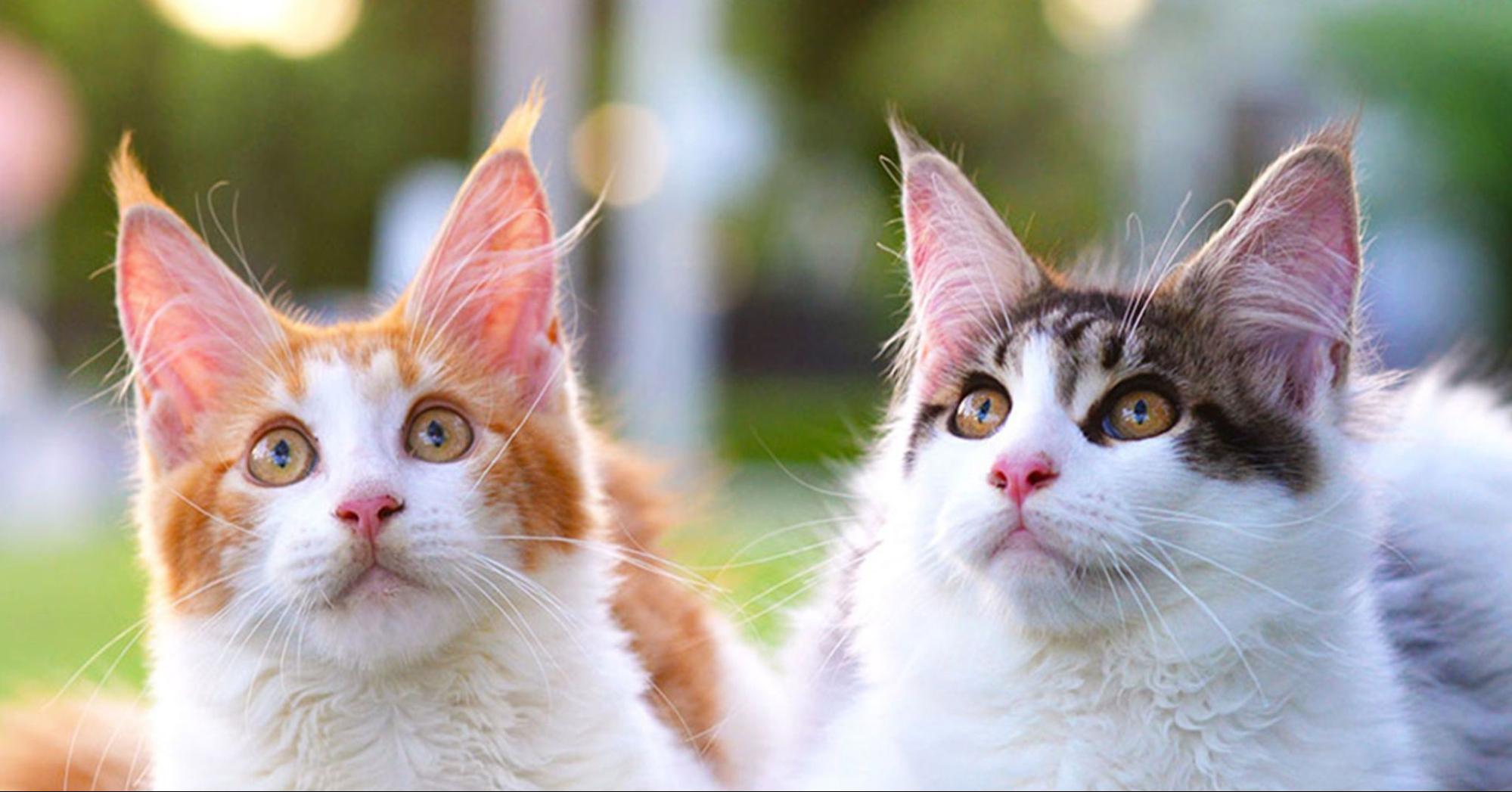
Breathing difficulties can arise from bacterial infections, viral infections, or exposure to toxins. Conditions like Pleural effusion and Pulmonary edema, which involve fluid buildup in the chest cavity, can cause labored breathing. Neurologic disorders, airway obstruction by foreign objects, and heart murmurs are other potential causes.
Diagnostic tools, including chest X-rays and blood tests, help identify underlying health issues. Supportive care, oxygen therapy, and emergency drugs may be necessary for treatment. Emotional distress and strenuous exercise can also lead to temporary panting. Always seek medical advice to address any severe health concerns and consider preventative medication for chronic conditions.
What Causes Abnormal Breathing In Cats?
While cats might breathe faster after a play session or due to stress, abnormal breathing like rapid breaths (tachypnea) or labored breathing can indicate deeper issues. Several culprits could be behind this struggle:
- Respiratory woes: Just like us, cats can get respiratory infections that make breathing difficult.
- Heart trouble: Heart disease can cause fluid buildup in the lungs (pulmonary edema), hindering oxygen intake.
- Blocked airway: Foreign objects stuck in the airway or conditions like asthma can obstruct airflow.
- Fluid overload: Fluid buildup in the chest cavity (pleural effusion) from various causes can restrict breathing.
- Neurological problems: In rare cases, neurological disorders can affect breathing patterns.
If your cat shows any abnormal breathing signs, don’t hesitate! Seek immediate veterinary attention. Early diagnosis is key to identifying the cause and providing the right treatment, which might involve medication, oxygen therapy, or even airway-clearing procedures. Remember, a quick response can significantly improve your cat’s chances of a full recovery.
What Should You Do If Your Cat Is Breathing Heavily?
If your cat is breathing heavily (more than 30 breaths per minute) and struggling, particularly if accompanied by lethargy, open-mouth breathing, or noisy breaths, stay calm but act quickly.
This heavy breathing, also known as tachypnea, can signal a serious medical condition like respiratory distress, heart disease, or airway obstruction. Do not attempt to diagnose or treat your cat yourself. Instead, immediately contact your veterinarian or an emergency animal clinic. Early intervention is crucial.
A veterinarian can diagnose the cause and provide the right treatment, which could involve oxygen therapy, medication, or even procedures to clear a blocked airway. Remember, a quick response can significantly improve your cat’s chances of a full recovery.
What Are The Signs Of Breathing Fast In Cats?
Cats may exhibit rapid breathing due to various reasons. Here are some signs to watch for:
- Increased Respiratory Rate: Cats normally breathe 20 to 30 times per minute. If you notice significantly faster breathing, it’s a concern.
- Labored Breathing: Struggling to breathe, visible effort, or noisy breathing are signs of distress.
- Nasal Flaring: Widening of the nostrils during breathing indicates respiratory difficulty.
- Loud Breathing: Wheezing, raspy sounds, or abnormal noise while breathing should be evaluated.
- Behavioral Changes: Cats in respiratory distress may become lethargic, hide, or avoid food.
- Blue Gums or Tongue: Lack of oxygen can lead to cyanosis (blue discoloration).
- Emergency Signs: Collapse, open-mouth breathing, or gasping require immediate veterinary care.
Remember, rapid breathing can be a clinical sign of serious conditions. Seek professional advice promptly.
What Should I Do If My Cat Is Breathing Fast?
Rapid breathing in cats can indicate serious medical conditions such as respiratory infections, heartworm disease, or heart disease. If you notice heavy breathing or an increased respiratory rate, seek immediate veterinary care. Breathing difficulties can result from bacterial infections, viral infections, or exposure to toxins.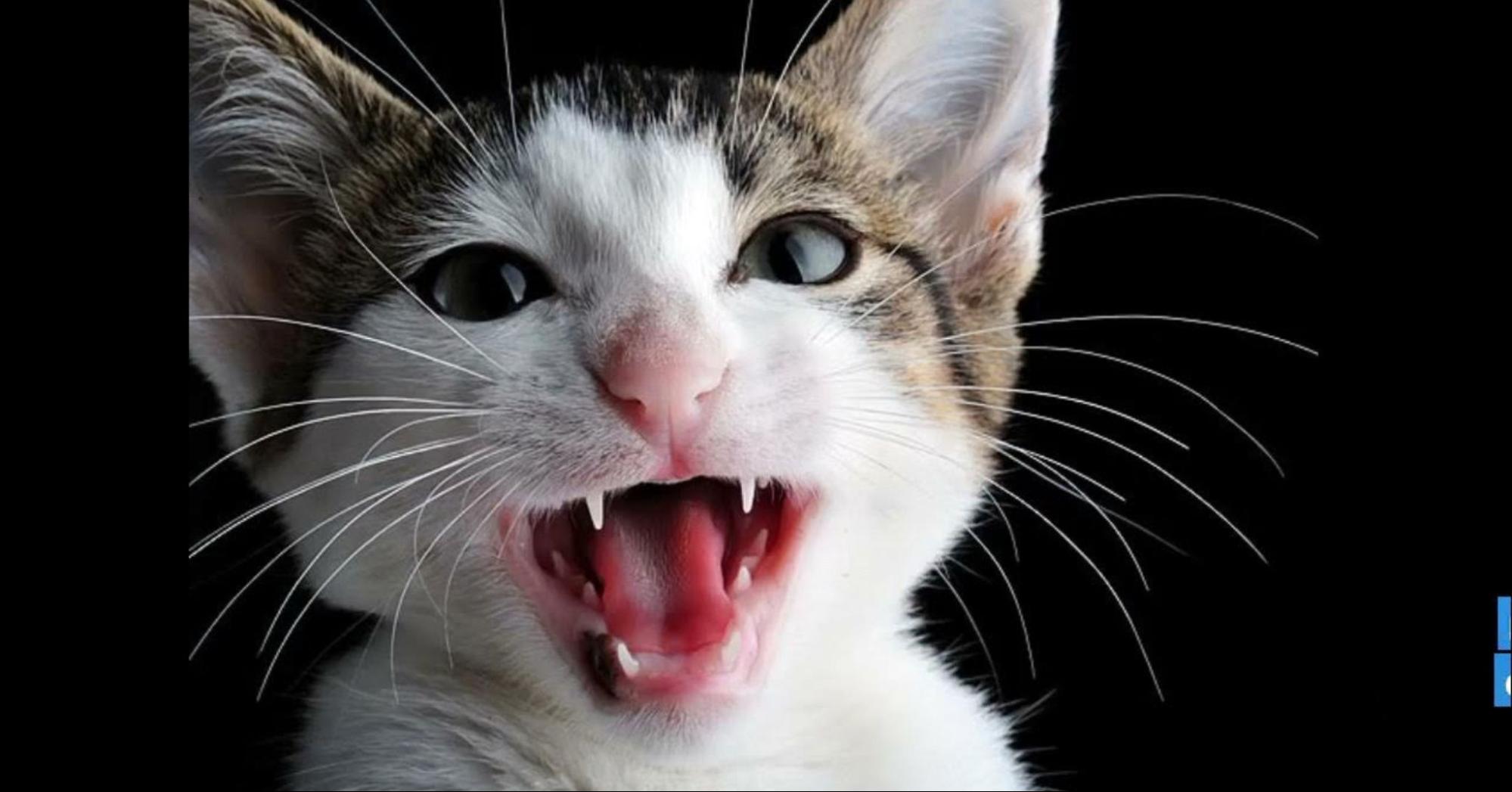
Other causes include Pleural effusion, which is the buildup of fluid in the chest cavity, Pulmonary edema, neurologic disorders, or airway obstructions by foreign objects. Diagnostic tools like chest X-rays and blood tests are essential to identify underlying health issues, such as heart murmurs or abnormal buildup of blood cells.
Emotional distress or strenuous exercise can also cause temporary rapid breathing. For chronic conditions like asthma in cats, preventative medication and adjustments in medications are necessary. Supportive care, including oxygen therapy, may be required. Always consult a veterinarian for medical advice and treatment to ensure your cat receives appropriate care.
Conclusion
If your cat is breathing fast, it could be a sign of a serious medical issue, including respiratory infections, heartworm disease, or heart disease. Rapid or heavy breathing requires immediate veterinary care to diagnose the underlying cause, whether it’s bacterial or viral infections, fluid buildup in the chest cavity, or other health concerns.
Diagnostic tools like chest X-rays and blood tests are crucial for identifying problems such as heart murmurs or airway obstructions. Prompt medical advice and supportive care, including oxygen therapy and adjustments in medications, are essential for managing your cat’s health. Always prioritize veterinary consultation to ensure your cat receives the necessary treatment and care.
FAQ
My Cat is Breathing Rapidly. Is This Normal?
While normal breathing rates are 16-40 breaths per minute, a faster rate after exercise or due to stress is okay. However, rapid breathing at rest (tachypnea) can indicate respiratory distress.
What Causes Rapid Breathing In Cats?
Respiratory infections, heart disease, airway obstruction, and fluid buildup in the lungs are some culprits.
My Cat Is Breathing Heavily And Seems Lethargic. What Should I Do?
Don’t wait! This could be a medical emergency. Immediately contact your veterinarian or an emergency animal clinic for prompt veterinary care.
Is Fast Breathing Normal For Cats?
No, not typically. While cats breathe faster after exercise or due to stress (16-40 breaths per minute is normal), rapid breathing at rest (tachypnea) can signal trouble.
What Causes Rapid Breathing?
Culprits include respiratory infections, heart disease, airway obstruction, or fluid buildup in the lungs.


